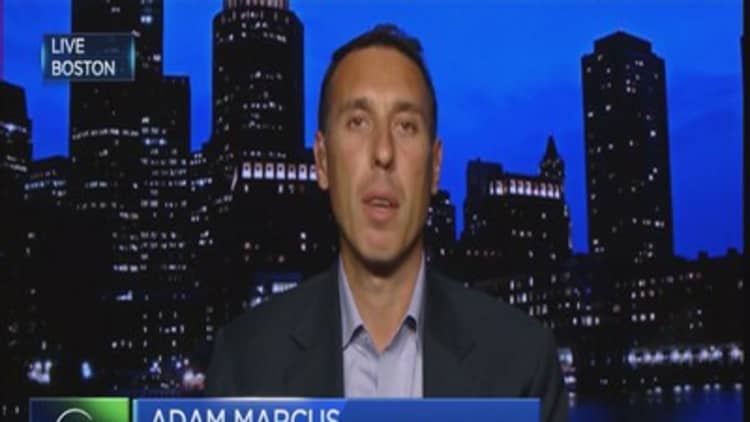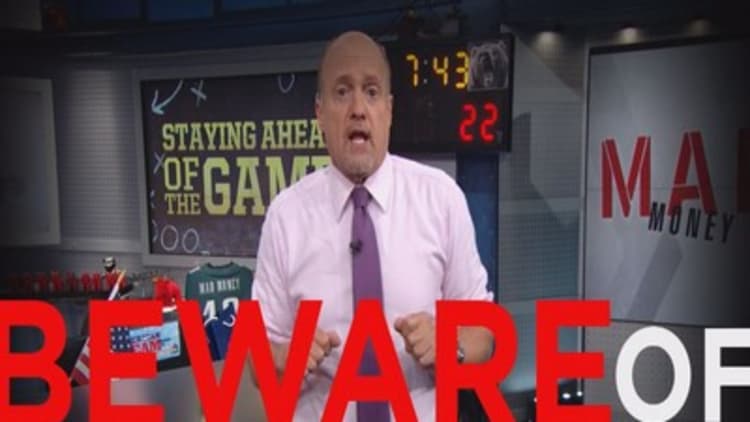
For the average investor, Silicon Valley's latest crop of fast-growing start-ups may seem out of reach. But with more money flowing from nontraditional venture capital investors into start-ups, anyone with a pension can now tap into the "magical" growth of the so-called dedacorns, private tech companies with valuations more than $10 billion.
Have you checked your 401(k) asset allocation recently? U.S. mutual funds, including T. Rowe Price and Fidelity, are investing in start-ups. And they're getting in on both early and late-stage rounds, sometimes called "private IPOs."
"Mutual fund managers don't want to wait for the IPOs and miss out on the growth these companies are experiencing now, which is why some have upped their exposure to private companies," said Morningstar analyst Katie Reichart.
According to data from Morningstar, U.S. mutual funds have invested billions in Silicon Valley's 10 most highly valued tech start-ups. The biggest — in terms of valuation — are consumer apps (think Uber, Airbnb, Snapchat, Pinterest and Dropbox), companies analyzing the present (Palantir), inventing the future (SpaceX) plus three foreign firms you may, or may not, have even heard of (Xiaomi, Flipkart and Didi Kuaidi).

And while plenty of mutual funds are active, a few stand out, either because of their size, or because of the percentage of their assets going into private start-ups.
One of the top players is T. Rowe Price. It's Growth Stock Fund has invested more than $376 million in three of the top 10 companies. Its biggest stake is in Flipkart, with shares totaling $158 million. It has a $145 million stake in Airbnb and a $73 million stake in Dropbox. But, as a percentage of its overall investments, the fund is allocating less than one percent of its total portfolio to venture capital bets.
Morgan Stanley, through its Inst Mid Cap Growth I and Inst Global Dscvry A funds, is also a significant player. Those funds have made the most aggressive moves into venture capital investments, measured by the percentage of their funds flowing into start-ups. The two funds have allocated 5 percent and 4 percent of their overall portfolios respectively. Collectively they are plowing $307 million for a $1.2 million stake in Airbnb, a $50 million stake in Palantir, a $76 million stake in Dropbox and a $271,000 stake in Flipkart.
Fidelity is the second biggest when it comes to dollars invested and the only one with a stake in Uber, the highest valued private tech company at more than $51 billion. The Fidelity Contrafund has a $193 million stake in Uber. It also owns $97 million worth of Dropbox shares and $36 million worth of Airbnb shares.
Those stakes total $326 million, but that's a tiny part of Fidelity's assets under management. The firm's investments across all asset classes top $106 billion, so Fidelity is allocating just 0.3 percent of its portfolio to venture funds.
Plenty of other funds are involved as well, of course. As least 45 different U.S. funds have invested in Uber, for example, according to Morningstar data.
"Many of the big fund companies that are investing in private companies have the resources to vet them. The data shows that in most cases these private investments make up a very small percentage of each fund's overall assets, which helps from a risk management perspective," said Reichart.
Many venture capitalists say low interest rates explains the so-called venture tourists, traveling West from Wall Street in search of greater returns. "The Federal Reserve has been printing a lot of money for a long time, and it's showing up in all asset classes," said Angellist CEO Naval Ravikant.








